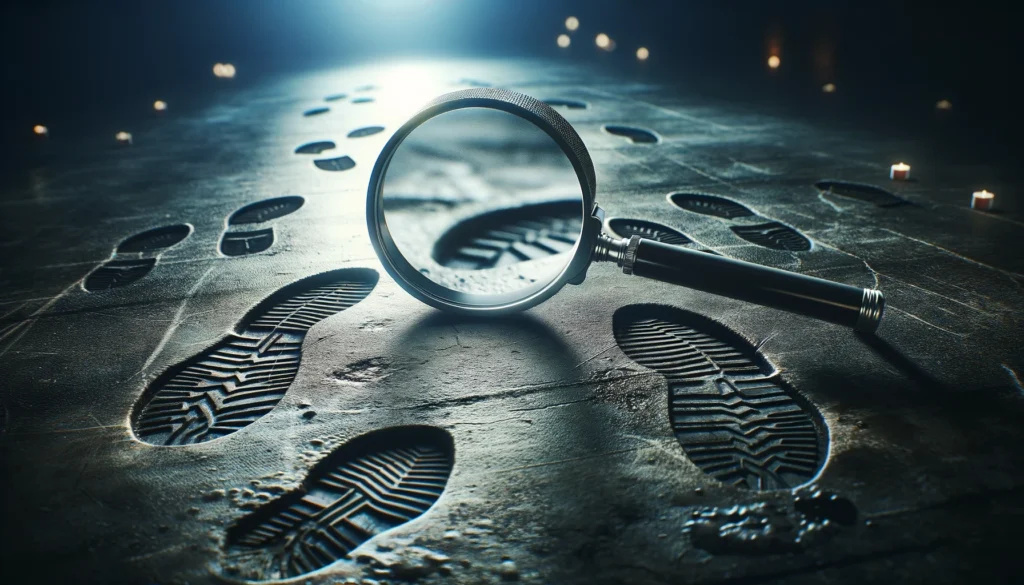
The Power of the Opening Statement: First Impressions Matter
In the theater of a criminal trial, the opening statement is the dramatic curtain-raiser. It sets the stage, introduces the characters, and foreshadows the narrative that will unfold. A powerful opening statement can captivate the jury, establish the credibility of your case, and lay the groundwork for a favorable verdict.
But crafting an impactful opening is no easy feat. It requires a delicate balance of legal arguments, compelling storytelling, and emotional resonance. Attorneys must distill complex facts and legal principles into a narrative that is clear, concise, and persuasive. They must connect with the jury on a human level, evoking empathy for their client while highlighting the weaknesses in the prosecution’s case.
This is where the power of AI can come into play. ChatGPT, with its advanced language processing capabilities, can be a valuable tool for brainstorming ideas, refining language, and generating creative approaches to opening statements. Let’s explore how…
ChatGPT: Your Opening Statement Co-Counsel
Think of ChatGPT as your AI-powered co-counsel, ready to assist in brainstorming, drafting, and refining your opening statement. Its ability to generate text, analyze information, and even simulate different perspectives can be invaluable in preparing for this crucial trial moment.
Here are some key ways ChatGPT can contribute:
- Generating Compelling Narratives: Provide ChatGPT with the basic facts of your case, and it can help weave them into a cohesive and engaging story. It can suggest different angles, highlight key details, and even offer potential themes to frame your narrative.
- Analyzing Case Facts and Evidence: Input witness statements, police reports, or other evidence, and ChatGPT can summarize key points, identify potential inconsistencies, and suggest arguments based on the available information.
- Drafting Persuasive Arguments: Ask ChatGPT to draft specific sections of your opening statement, such as an introduction that grabs the jury’s attention, a concise summary of the facts, or a preview of your key arguments.
- Identifying Key Themes and Emotional Hooks: ChatGPT can help you identify emotional touchpoints in the case that can resonate with the jury, such as themes of justice, fairness, or protecting the innocent.
Important Note:While ChatGPT is a powerful tool, it's important to exercise ethical judgment and ensure that any AI-generated content aligns with legal and ethical standards. Always review and revise ChatGPT's output to ensure accuracy, appropriateness, and compliance with the rules of evidence.
To get the most out of ChatGPT’s assistance, you need to master the art of effective prompting. Let’s explore some specific strategies for using prompts to generate impactful opening statements.
Also read:
Prompt Engineering for Opening Statement Success
Crafting the perfect opening statement requires a combination of legal acumen, persuasive storytelling, and emotional intelligence. ChatGPT can be a powerful ally in this process, but the key lies in knowing how to guide its responses. Here are some prompt strategies to help you craft an impactful opening statement:
Theme Development:
- Prompt: “Analyze the case facts [provide a concise summary of the key facts]. Suggest three potential themes or overarching narratives that could be used to frame our opening statement. Consider themes that emphasize the defendant’s innocence, cast doubt on the prosecution’s case, or appeal to the jury’s sense of justice and fairness.”
- Purpose: Helps you identify and explore different angles for your opening statement, ensuring you choose a narrative that resonates most strongly with the jury.
Argument Generation:
- Prompt: “Draft an opening statement outline that emphasizes the following key points [list the strongest points of your defense], while highlighting specific weaknesses or inconsistencies in the prosecution’s case [provide examples]. Include potential counterarguments to anticipate the prosecution’s strategy.”
- Purpose: Provides a structured outline with persuasive arguments and counterarguments, saving you time and ensuring a comprehensive approach.
Emotional Appeal:
- Prompt: “Help me craft a powerful opening statement that will resonate with the jury on an emotional level. Focus on [specific emotions, e.g., empathy for the defendant’s difficult circumstances, outrage at police misconduct, or the injustice of a wrongful accusation].”
- Purpose: Guides ChatGPT to generate language that appeals to the jury’s emotions, making your opening statement more memorable and persuasive.
Counter-Narrative:
- Prompt: “Imagine you are the prosecutor in this case. Draft a hypothetical opening statement from their perspective, highlighting their strongest arguments and the potential challenges they might face in proving guilt beyond a reasonable doubt.”
- Purpose: Allows you to anticipate the prosecution’s strategy, identify potential vulnerabilities in their case, and prepare effective counterarguments.
Additional Tips for Prompting:
- Be Specific: Provide as much detail as possible about the case facts, legal issues, and desired tone of the opening statement.
- Iterative Refinement: Use ChatGPT’s initial responses as a starting point. Refine your prompts and ask follow-up questions to guide its output towards your specific goals.
- Experiment: Don’t be afraid to try different prompts and approaches to see what works best for your case and your personal style.
Crafting a strong opening statement is not just about the words on the page. It’s also about the delivery. Let’s explore how ChatGPT can help you practice and refine your presentation skills.
Also read:
The Art of Delivery: Beyond the Script
A well-crafted opening statement is only as effective as its delivery. The way you present your narrative, the tone of your voice, your body language, and your ability to connect with the jury can significantly impact their perception of your case.
ChatGPT can be a valuable tool in honing your delivery skills:
- Practice Sessions: Use ChatGPT as a virtual audience. Deliver your opening statement aloud to the AI and ask for feedback on clarity, pacing, and tone. This can help you identify areas where you might stumble or lose the jury’s attention.
- Simulated Q&A: Ask ChatGPT to generate potential questions that jurors might have after hearing your opening statement. Practice answering these questions clearly and concisely to prepare for potential interactions during the trial.
- Feedback on Non-Verbal Communication: While ChatGPT cannot directly assess non-verbal cues, you can describe your planned body language and gestures, and ask for feedback on whether they are likely to be effective or distracting.
Remember, the opening statement is not just about the words; it’s about the overall impression you create. ChatGPT can help you polish your script, but ultimately, it’s your authentic connection with the jury that will leave a lasting impact.
While AI can be a powerful tool for trial preparation, it’s important to consider the ethical implications and the role of human advocacy in the courtroom.
Also read:
Ethical Considerations and the Role of Human Advocacy
While the use of ChatGPT in crafting opening statements can be a boon for efficiency and creativity, it is not without ethical considerations. It’s essential to remember that AI is a tool, not a replacement for the nuanced judgment and strategic thinking of a skilled trial attorney.
Transparency and Disclosure: It’s important to be transparent with the court and opposing counsel about the use of AI in trial preparation. While there are no specific rules prohibiting its use, ethical considerations suggest that disclosure may be warranted, especially if the AI-generated content significantly influences the direction of the opening statement.
The Role of Human Advocacy: ChatGPT can generate powerful language and persuasive arguments, but it cannot replicate the human connection that is so crucial in a jury trial. The attorney’s passion, empathy, and understanding of the nuances of the case remain irreplaceable.
Remember:ChatGPT is a tool to enhance, not replace, the art of human advocacy. By using it responsibly and ethically, attorneys can leverage its capabilities to craft more impactful opening statements, ultimately serving the best interests of their clients and the justice system.


